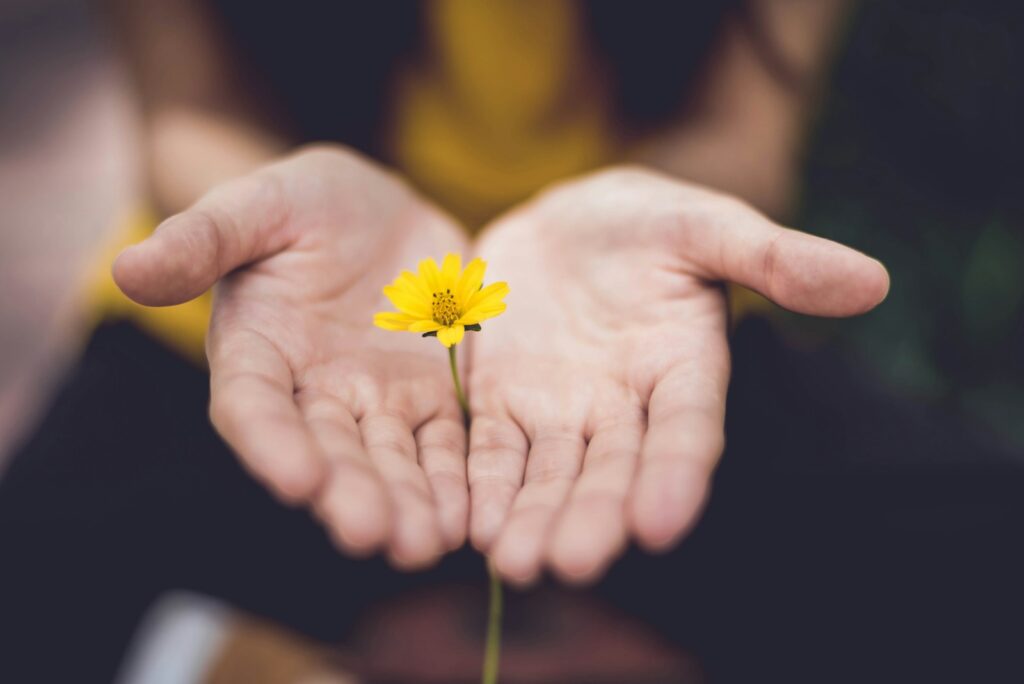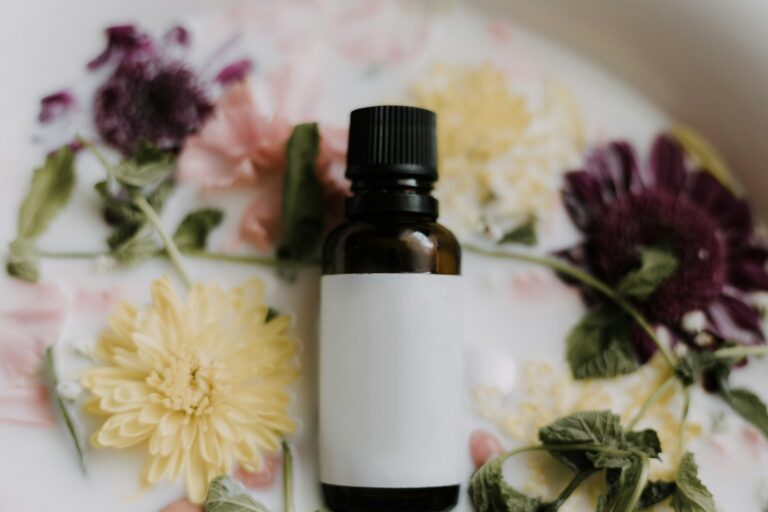Harmonious Living Unveiled: Exploring the Benefits
Introduction to Harmonious Living
Harmonious living is a state of being in which all aspects of your life are in balance.
This means that you are physically, mentally, emotionally, and spiritually healthy.
You are living in alignment with your values and goals, and you are making choices that are in your best interest.
When you are living harmoniously, you feel good about yourself and your life. You are happy and content, and you have a sense of purpose.
You are able to cope with stress and challenges in a healthy way, and you are able to maintain positive relationships with others.
Harmonious living is not something that you achieve overnight. It is a journey that takes time, effort, and commitment.
However, the benefits of living harmoniously are well worth it.
If you are ready to start living a more balanced and fulfilling life, read on for more information on how to achieve harmonious living.
The Benefits of Harmonious Living

Harmonious living is a state of being in which you are at peace with yourself, your surroundings, and your relationships.
It is a life that is characterized by balance, happiness, and fulfillment.
There are many benefits to living a harmonious life. Some of the most notable benefits include:
- Reduced stress
- Improved health
- Enhanced relationships
- Increased happiness
- Greater sense of purpose
When you are living in harmony, you are more likely to be able to handle stress in a healthy way.
You are also more likely to make healthy choices for yourself, which can lead to improved overall health. Harmonious living can also help you to build stronger relationships with the people in your life.
When you are at peace with yourself, you are more likely to be able to be present and engaged with others.
Finally, living a harmonious life can lead to greater happiness and a sense of purpose. When you are living in alignment with your values, you are more likely to feel fulfilled and happy.
You are also more likely to be able to make a positive impact on the world around you.
If you are looking for ways to improve your life, consider making some changes to live a more harmonious life.
You may be surprised at how much better you feel when you are living in balance and peace.
How to Achieve Harmonious Living
There are many different ways to achieve harmonious living, but some of the most important steps include:
- Be present in the moment. One of the best ways to achieve a sense of peace and balance is to focus on the present moment. When you’re worrying about the past or the future, you’re not able to fully enjoy the present moment. Try to practice mindfulness meditation or simply take a few deep breaths to center yourself and focus on the present moment.
- Be grateful for what you have. Gratitude is a powerful emotion that can help you to feel happier and more fulfilled. Make a habit of writing down things that you’re grateful for each day, even if they’re small things. When you focus on the good things in your life, it’s easier to appreciate what you have and to let go of things that you don’t have.
- Let go of things that don’t matter. One of the biggest obstacles to harmonious living is holding on to things that don’t matter. This could include grudges, negative thoughts, or material possessions. When you let go of things that don’t matter, you free up your mind and energy to focus on the things that do matter.
- Be kind to yourself and others. One of the best ways to create a harmonious life is to be kind to yourself and others. This means forgiving yourself for your mistakes, being compassionate towards others, and spreading kindness to everyone you meet. When you’re kind to yourself and others, it creates a positive ripple effect that can make the world a more harmonious place.
- Live your life with purpose. When you have a sense of purpose in your life, it’s easier to find meaning and satisfaction in your day-to-day activities. Find something that you’re passionate about and devote your time and energy to it. When you’re living your life with purpose, you’re more likely to feel fulfilled and happy.
By following these steps, you can create a more harmonious and fulfilling life for yourself.
Practical Steps for Harmonious Living

Here are some practical steps that you can take to live a more harmonious life:
- Take care of your physical health. This means eating a healthy diet, getting enough sleep, and exercising regularly. When you take care of your physical health, you are better able to handle stress and cope with challenges.
- Take care of your mental health. This means practicing mindfulness, meditation, and yoga. It also means spending time with loved ones and doing things that you enjoy. When you take care of your mental health, you are better able to manage your emotions and stay positive.
- Create a positive environment. Surround yourself with positive people and things. Make your home a place where you feel relaxed and comfortable. When you create a positive environment, you are more likely to feel happy and peaceful.
- Set boundaries. Learn to say no to things that you don’t want to do. Don’t be afraid to stand up for yourself and your needs. When you set boundaries, you are more likely to protect your time and energy.
- Be grateful. Make a habit of expressing gratitude for the things that you have. Gratitude has been shown to increase happiness and well-being.
- Give back. Find ways to help others. Volunteer your time, donate to charity, or simply offer a helping hand to someone in need. When you give back, you are not only helping others, but you are also enriching your own life.
- Live in the present moment. Don’t dwell on the past or worry about the future. Focus on the present moment and enjoy the good things that are happening right now. When you live in the present moment, you are more likely to feel happy and peaceful.
- Be kind to yourself. Forgive yourself for your mistakes and learn from them. Accept yourself for who you are, flaws and all. When you are kind to yourself, you are more likely to be happy and fulfilled.
By following these steps, you can create a more harmonious life for yourself. You will be happier, healthier, and more fulfilled.
The Power of Forgiveness
Forgiveness is one of the most powerful tools we have for creating a harmonious life.
When we forgive others, we release ourselves from the burden of anger and resentment, and we open ourselves up to the possibility of healing and growth.
Forgiveness is not always easy, especially when we have been deeply hurt by someone.
But it is important to remember that forgiveness is not about condoning the other person’s actions.
It is simply about letting go of our anger and resentment, and choosing to move on with our lives.
There are many benefits to forgiveness. When we forgive others, we:
- Reduce our stress levels
- Improve our physical health
- Increase our happiness
- Strengthen our relationships
- Create a more peaceful world
If you are struggling to forgive someone, there are a few things you can do to help the process.
First, it is important to allow yourself to feel your emotions. Don’t try to suppress your anger or resentment. Let yourself feel them, and then let them go.
Second, try to understand the other person’s perspective. What were they thinking and feeling when they did what they did? Once you understand their perspective, it may be easier to forgive them.
Finally, remember that forgiveness is not about condoning the other person’s actions. It is simply about letting go of your anger and resentment, and choosing to move on with your life.
Forgiveness is a powerful tool that can help us create a more harmonious life.
When we forgive others, we free ourselves from the burden of anger and resentment, and we open ourselves up to the possibility of healing and growth.
The Importance of Gratitude
Gratitude is a powerful emotion that can have a positive impact on our lives.
When we express gratitude, we are not only acknowledging the good things in our lives, but we are also opening ourselves up to receive more of them.
Studies have shown that gratitude can lead to increased happiness, optimism, and resilience. It can also help us to build stronger relationships and improve our overall well-being.
There are many ways to express gratitude. You can write a thank-you note to someone who has helped you, or you can simply take a moment each day to reflect on the things you are grateful for.
You can also share your gratitude with others by volunteering your time or donating to a cause you care about.
If you are struggling to find things to be grateful for, try keeping a gratitude journal.
Each day, write down three things that you are grateful for.
This simple practice can help you to focus on the positive aspects of your life and to appreciate the good things that you have.
Gratitude is a powerful emotion that can make a real difference in our lives.
By expressing gratitude, we can improve our happiness, our relationships, and our overall well-being.
Here are some additional tips for incorporating gratitude into your life:
- Start your day with gratitude. Take a few minutes each morning to think about the things you are grateful for. This will help you to set a positive tone for the day.
- Be grateful for the people in your life. Make an effort to express your gratitude to your friends, family, and loved ones.
- Be grateful for your experiences. Take time to reflect on the positive experiences you have had. This will help you to appreciate the good things in your life.
- Be grateful for the simple things. Sometimes, the smallest things can bring us the most joy. Take time to appreciate the simple things in your life.
Gratitude is a powerful emotion that can make a real difference in our lives.
By expressing gratitude, we can improve our happiness, our relationships, and our overall well-being. So start practicing gratitude today!
The Joy of Giving

Giving is one of the most powerful things you can do to live a more harmonious life.
When you give to others, you are not only making a difference in their lives, but you are also enriching your own life.
There are many different ways to give.
You can donate money to a charity, volunteer your time, or simply lend a helping hand to someone in need. No matter how you choose to give, the act of giving is a gift to yourself as well as to others.
When you give, you are not only helping others, you are also opening yourself up to the possibility of receiving.
When you give from a place of love and compassion, you are creating a positive energy that attracts more love and compassion into your life.
Giving is also a great way to connect with others. When you give to someone, you are creating a bond between you and that person.
This bond can be strengthened over time, and it can lead to a deep and lasting friendship.
If you want to live a more harmonious life, I encourage you to make giving a part of your daily routine.
Even small acts of giving can make a big difference. So next time you see someone in need, don’t hesitate to reach out and help. You might be surprised at how good it makes you feel.
Here are some tips for making giving a part of your life:
- Start by giving something small. You don’t have to give a lot of money or time to make a difference. Even a small gesture can go a long way.
- Give from a place of love and compassion. When you give from the heart, you are not only helping others, you are also enriching your own life.
- Be grateful for what you have. When you are grateful for what you have, you are more likely to share it with others.
- Find ways to give that are meaningful to you. There are many different ways to give. Find a way that you enjoy and that makes a difference in the world.
Giving is one of the most rewarding things you can do in life. It is a gift to yourself as well as to others.
So next time you see someone in need, don’t hesitate to reach out and help. You might be surprised at how good it makes you feel.
The Benefits of Meditation
Meditation is a practice that has been shown to have a number of benefits for both physical and mental health.
It can help to reduce stress, improve focus, and promote relaxation.
Meditation can also help to increase mindfulness, which is the ability to be aware of our thoughts and feelings without judgment.
There are many different ways to meditate, but the most common method is to sit in a comfortable position and focus on your breath.
You can also focus on a mantra or a visualization.
As you meditate, try to let go of any thoughts or feelings that arise, and simply focus on the present moment.
Meditation is a practice that takes time and effort to master, but it can be very rewarding. I
f you are new to meditation, it is a good idea to start with short sessions of five to ten minutes. Gradually increase the length of your sessions as you become more comfortable with the practice.
Meditation is a safe and effective way to improve your health and well-being.
If you are interested in learning more about meditation, there are many resources available online and in libraries.
Here are some of the benefits of meditation:
- Reduces stress
- Improves focus
- Promotes relaxation
- Increases mindfulness
- Reduces pain
- Improves sleep
- Boosts the immune system
- Reduces inflammation
- Improves mood
If you are looking for a way to improve your health and well-being, meditation is a great option. It is a safe and effective practice that can help you to reduce stress, improve focus, and promote relaxation.
The Power of Positive Thinking
Positive thinking is a powerful tool that can help you to achieve your goals, improve your relationships, and live a happier and more fulfilling life.
When you think positively, you are more likely to be optimistic, hopeful, and resilient.
You are also more likely to take risks, try new things, and pursue your dreams.
There are many benefits to positive thinking, including:
- Improved health
- Increased happiness
- Enhanced relationships
- Greater success
- Increased resilience
If you want to start thinking more positively, there are a few things you can do:
- Focus on the good things in your life
- Practice gratitude
- Challenge negative thoughts
- Surround yourself with positive people
- Meditate
Positive thinking is a skill that takes practice, but it is well worth it. When you think positively, you will be happier, healthier, and more successful.
Here are some additional tips for practicing positive thinking:
- Start your day with a positive affirmation.
- Write down three things you are grateful for each day.
- Keep a journal of your positive experiences.
- Spend time with positive people.
- Do things that make you happy.
Positive thinking is a powerful tool that can help you to live a happier and more fulfilling life.
By practicing positive thinking, you can improve your health, your relationships, and your success.







